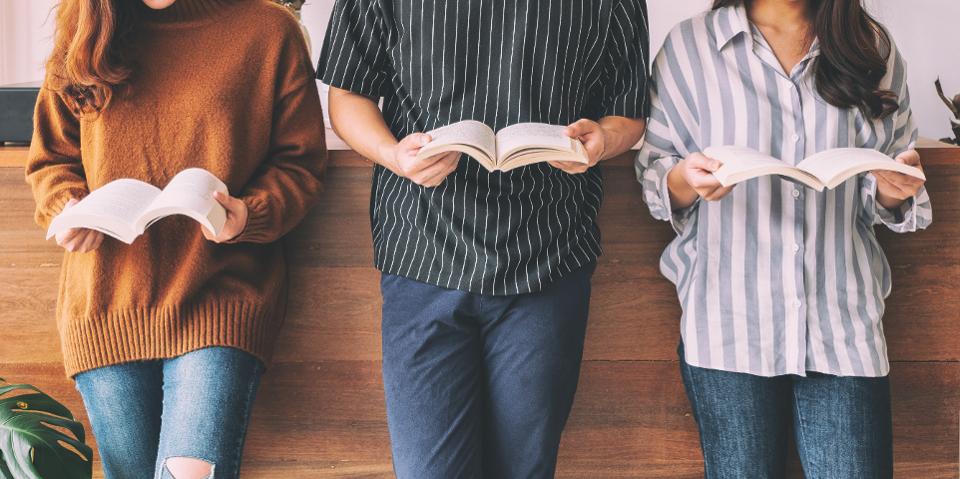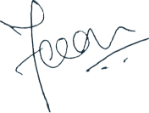5 Ways To Make Reading A Habit

An average person reads less than four books a year while an avid one (like Barack Obama or Bill Gates) reads 50. I read around 10 books from cover to cover every year while skimming through around 50. I only read an entire book when I need to know much more than the summary, where there’s something deeper that I find enriching.
The question is: How can you read more? Here are some techniques to make reading a habit:
1. Start reading from your topic of interest: If you’re a non-reader your first hurdle would be how to start reading. The best way is to read books on topics that you are interested in (football, gardening or cooking, for example) and then look for recommendations, which you can easily get through a Google search. Start with a simple and easy to read book — The Boy, The Mole, The Fox and The Horse by Charlie Mackesy is a wonderful example. Some books start slow. Don’t give up reading after the first few pages; get to the end of the chapter. If the writer’s style isn’t great but there’s something about the book that engages you, like a gripping plot, keep going; you can always skip paragraphs! And it is okay to quit half way through if you don’t like it. The bottom line: it is never too late to start reading. As Mortimer J. Adler said, “In the case of good books, the point is not to see how many of them you can get through, but rather how many can get through to you.”
2. Keep aside some time every day for reading: Set aside an hour every day for immersion in a book of substance. Some would argue that you don’t have an hour. But then, if you have an hour for maintaining your physical health — going for a run or to the gym — surely you should spend at least as much protecting your emotional, intellectual and spiritual health, which is much more essential for your well-being. You can even consider reading as a form of meditation, training in attentiveness. Attending book readings/discussions at a bookstore near you is a good way to get into the habit.
3. Avoid distraction by reading physical books: Our biggest challenge is to find the time and attention span to not get distracted. Physical books are helpful in keeping us focused. While e-books have their value, physical books can help reduce our screen time and refresh our brain in a unique way. Reading physical books helps you slow down and get perspective.
4. When short of time, use Apps like Audible and Blinkist: While there is no substitute for reading, there are some good apps for maximizing the time you have at hand. Listening to audio books while driving is a good technique. Another is my current favorite: an app called Blinkist, a platform for summaries of nonfiction books. I believe most economics, management and how-to books can be summarized very easily. Since I read mostly non-fiction books, Blink provides me a quick gist and key message of each. While purists may object to such shortcuts, I like to compare the methods to two kinds of cricket matches. Reading a full- length book is like playing a Test match while reading a summary on Blink is like a T20 match or watching the highlights! Each has its own value and audience.
5. Read for the Style and Content: If you are a fan of style, then you need to savor every line — for example The Gene by Siddharth Mukherjee, which has his personal story as well as striking imagery when explaining scientific concepts in a simple, relatable manner. Similarly, you might read just for the language, the lucidity with which the argument is presented, and sometimes the inter-disciplinary connections that give you a glimpse into the mind of the writer. This can help you in your own writing and in how your present your thoughts. Similarly, books of opinions and essays by people whose intellect you respect or whose views you may be interested in whether you agree with them or not — for example, Noam Chomsky or George Orwell — need to be read in full.
Reading is no longer a luxury, it is a necessity. Put away your devices, try to be where no one will disturb you, tell yourself that this is your sacred time, for expanding your imagination, your attention, your sense of possibility, and for drawing up from some deep well whatever is best in you. I can almost guarantee that if you choose your books well (I gravitate towards biographies, books on ideas and leadership — anything that is not just about diversion), at the end of an hour you will be a more nuanced and far truer version of yourself. Do this often enough and you’ll wonder how you ever survived without it.
As my friend and author Pico Iyer says, “Nearly all of us are happiest (inspired, productive and engaged) when we are most profoundly absorbed, least happy when we’re all over the place and distracted. So, write yourself a prescription for happiness through one of the best methods of deepening attention — and joy — that man has discovered. And that is reading!”

